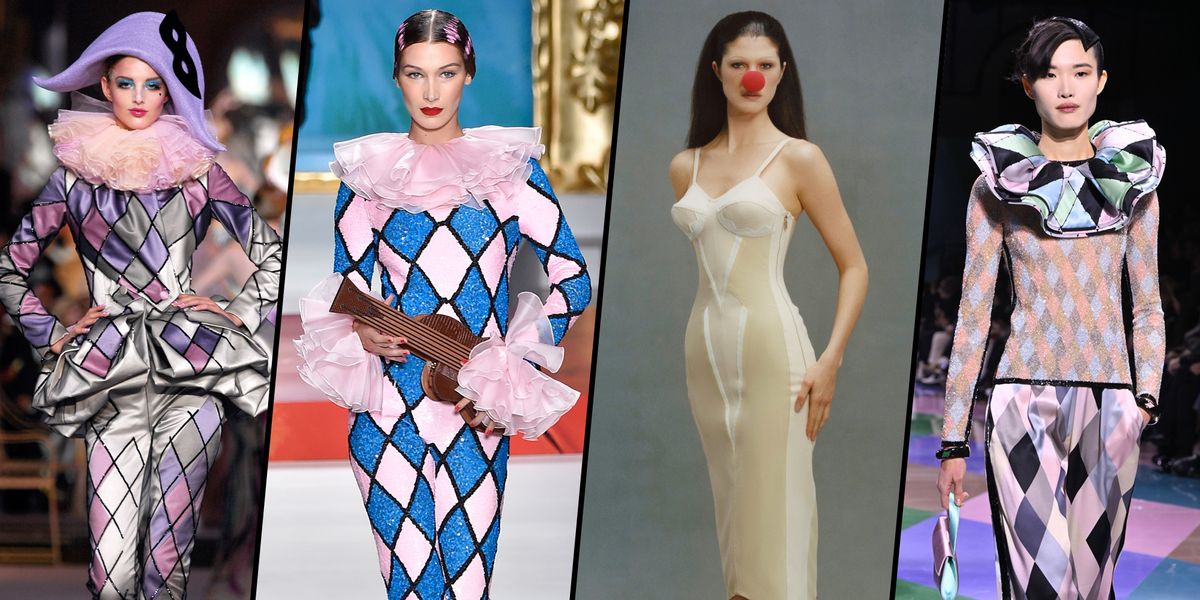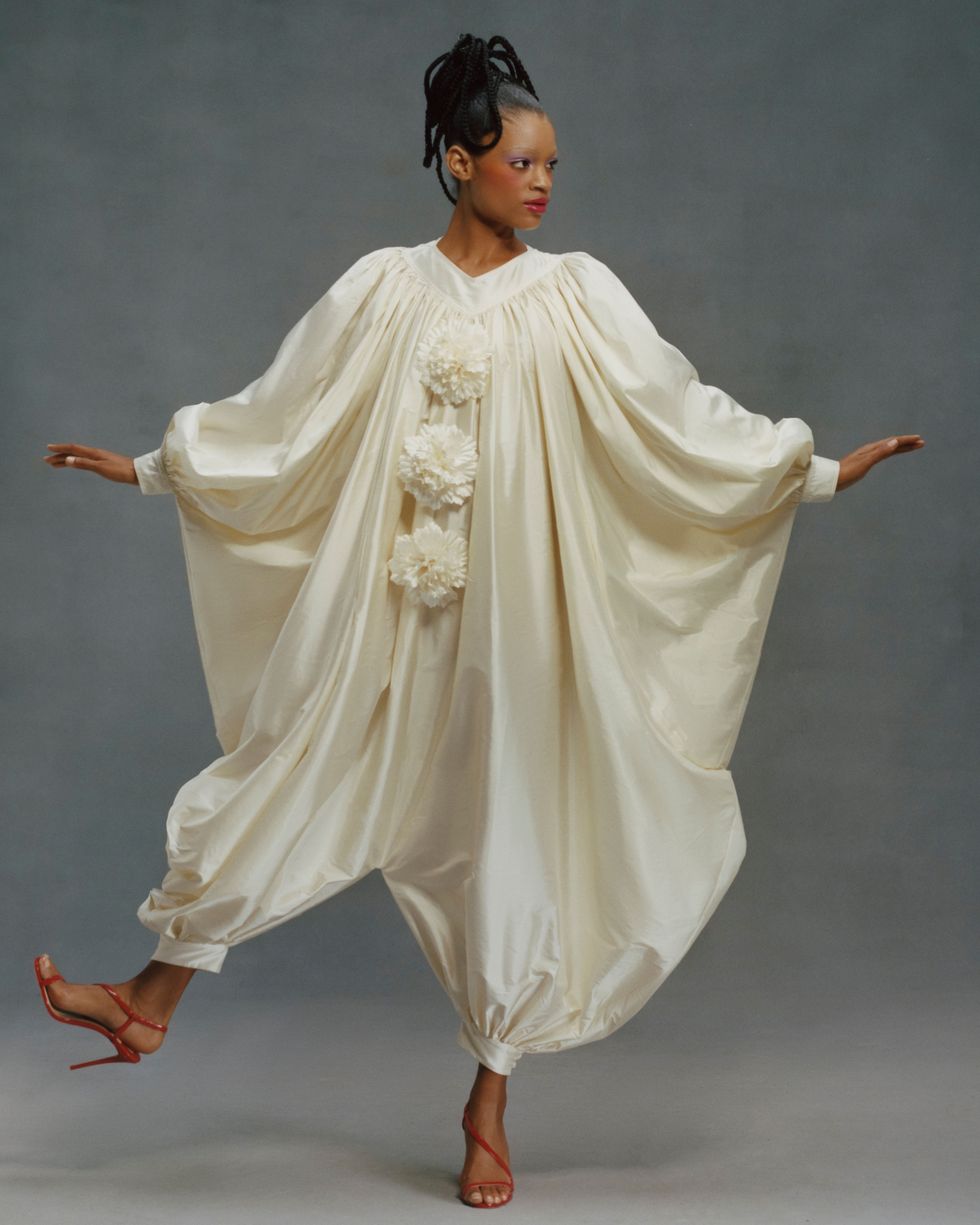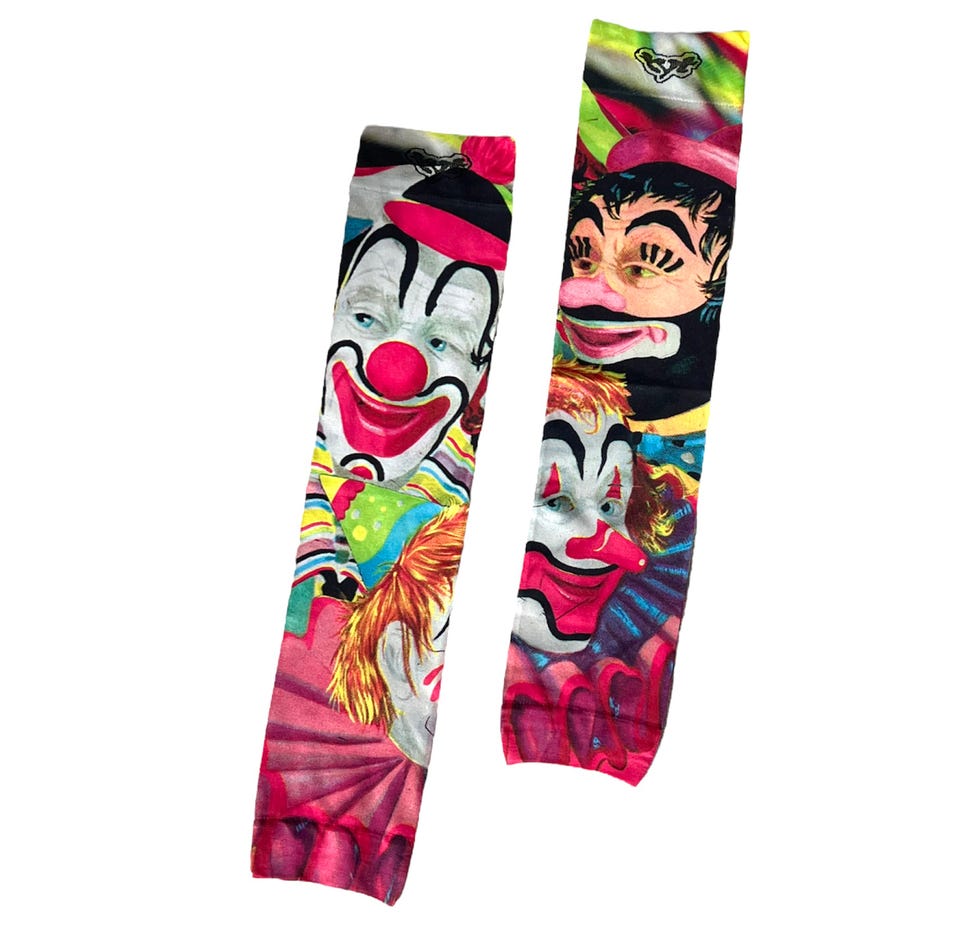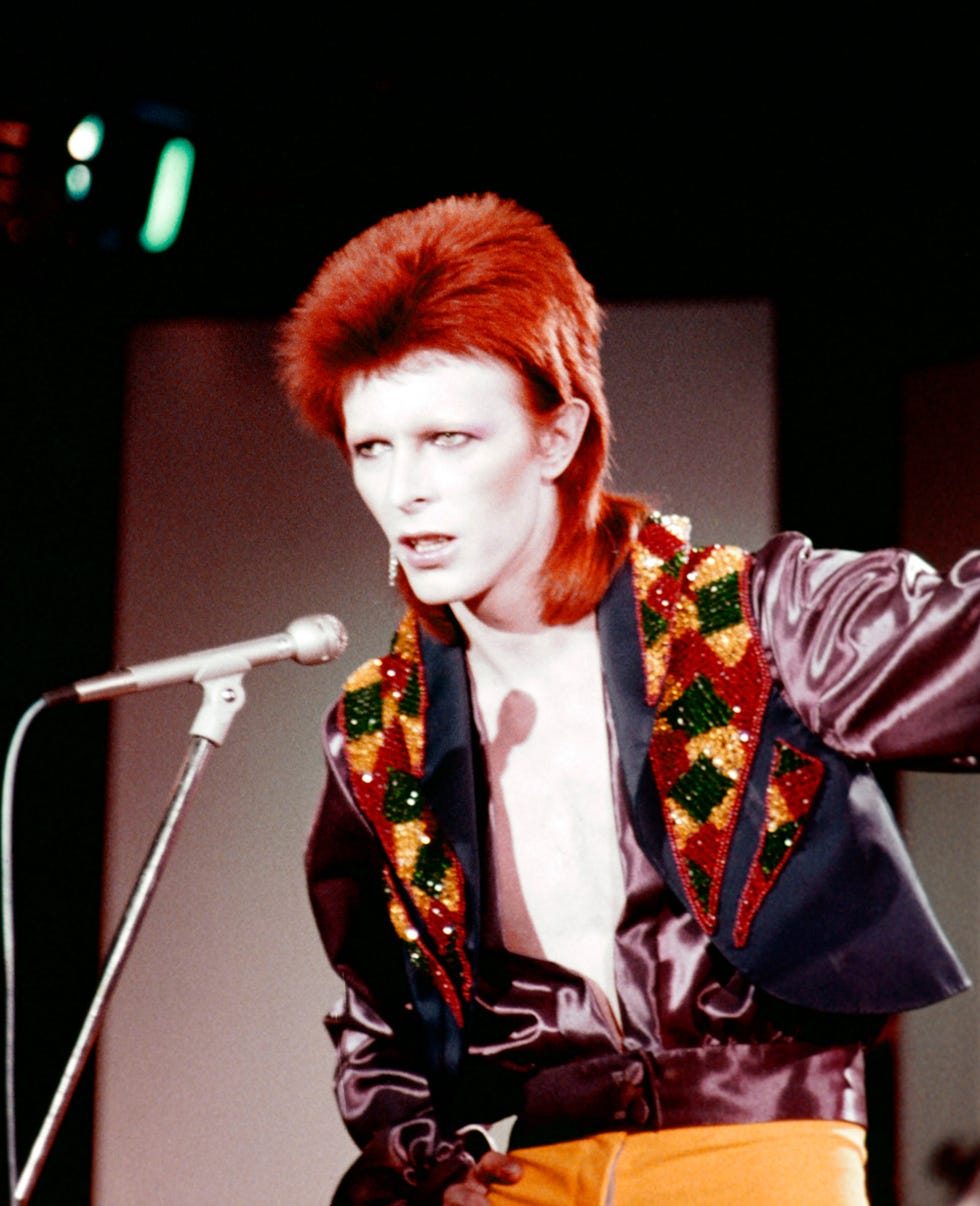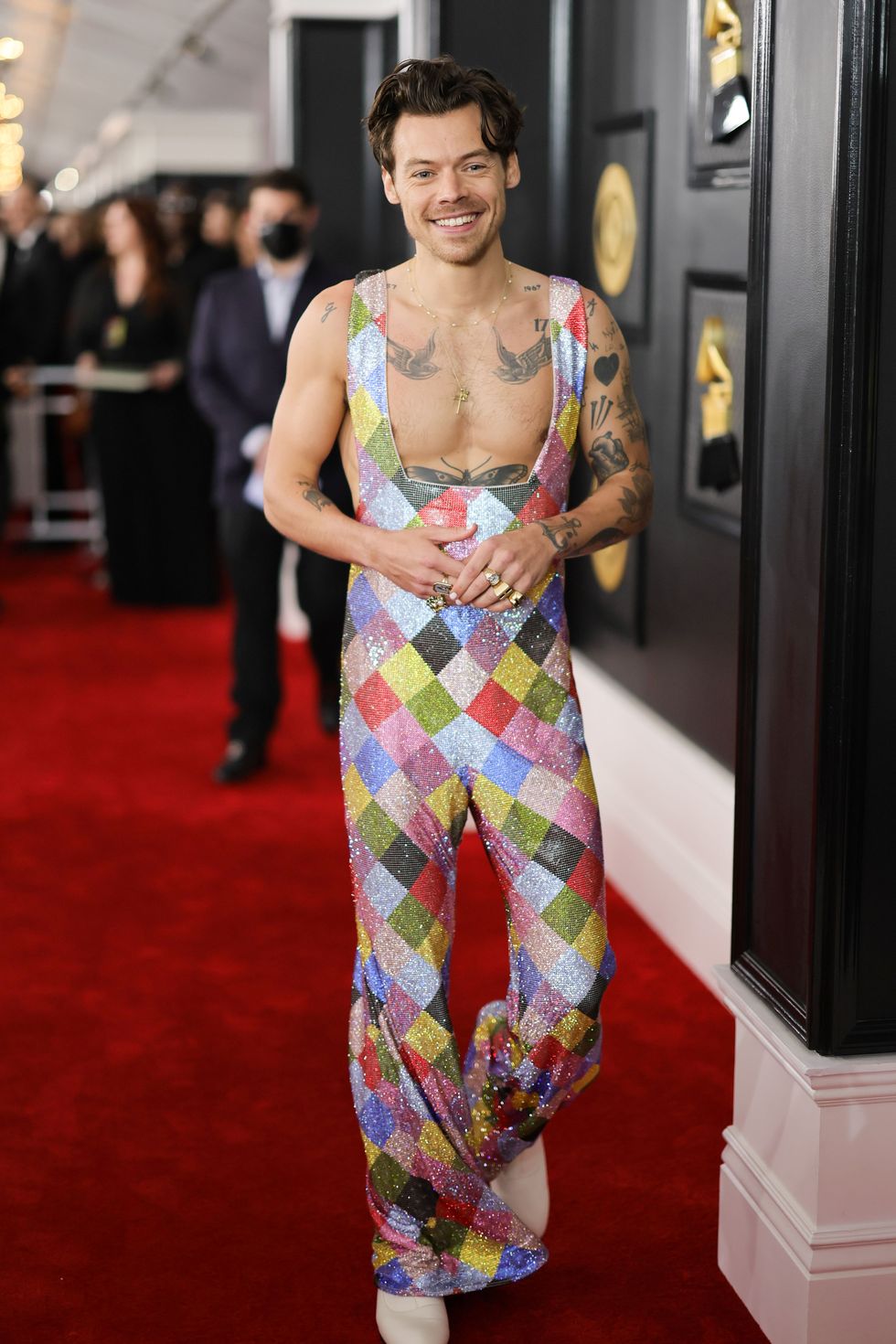Products You May Like
This year is shaping up to be all about clownery in fashion. For Christopher John Rogers’ pre-fall 2023 collection, the designer unveiled a magical ivory white clown suit, replete with silk flowers for added drama. The theme of the clown has seemingly reached its sartorial peak: it was literally everywhere at the spring 2023 couture shows in Paris. Dior presented a fancy clown collar inspired by the wardrobe of Josephine Baker, while Armani Prive fully devoted itself to sparkling harlequin prints and patterns. Chanel’s decorative top hats and bows spoke to the ringleader fantasy. Even Marni’s fall 2023 show, which took place in Japan, alluded to the high-volume, absurd shapes and silhouettes of the classic character’s outfit.
For the unfamiliar, Pierrot, the classic pantomime stock character tied to the 17th-century Italian troupe of performers in Paris, is perhaps the most fashionable clown of all time, with a deep history of designer references, from John Galliano to Vivienne Westwood. “I love the wide range of emotions that the characters can represent,” says Rogers of his clown suit in his recent collection. “We’ve done this silhouette before in Collection 009, but in a multi-hued pink silk georgette, and I thought it would be quite lovely in a fabric with more articulation like a silk taffeta. I’m always looking at stock characters like Pierrot for inspiration, and we thought adding fabric flowers down the center front would be a lovely addition.”
Cool brands in the know are all over clowns as a concept. Consider Bode, which has reinterpreted the iconoclastic clown suit costume time and time again. Likewise, unisex hosiery brand TYT creates magical clown printed tights and skirts in a rainbow of colors with quirky faces that are as funny as they are scary. When designer Sasha Marie Bell stumbled upon a Jack in the Box at her boyfriend’s house in Italy, which had been passed down through generations, she knew she had to do something with it. “It was a bit of a change from the usual routine of scanning images to create our tights,” she confesses. “By incorporating a physical object into our process, we were able to add extra personal touch and connect on a deeper level to the past, which I think makes our clown pieces all the more special.”
Clown motifs in fashion definitely aren’t new. In fact, the first known clowns date from the time of the Fifth Dynasty of Egypt, around 2400 BC. Since the character is so tightly tied to its uniform, it has served as fashion inspiration for centuries. Some of the most memorable moments include Westwood experimenting with harlequin prints in 1989, and long before that, performers like David Bowie and Freddie Mercury wore outfits inspired by clowns. There was an explosion of clownified fashion on the runways in 2021, and it’s only gotten stronger ever since.
Bell noticed an uptick in the interest in clowns in 2020 and was quick to jump on it, with bodycon tights and skirts printed with mysterious allusions to the character. “It’s a movement that’s all about having a good time and standing out from the crowd—that’s what makes it so fun,” she says. “If you wear any of our clown pieces, be prepared for some curious stares, but also be ready to embrace your inner circus performer and have a cheeky time.”
The look is definitely not without the influence of TikTok. During the peak of the pandemic, many maximalist fashionistas on the platform fully committed to clowncore, which is exactly what it sounds like: outfits celebrating the aesthetics of the clown. Kelley Heyer was one of the most popular creators known for that: “During the peak [of the] pandemic, all my work as an actor stopped and I felt like I had no creative outlet,” she says. “I turned to social media and found a lot of joy in sharing my wardrobe and style online. I found myself leaning more into the performance of fashion. How far can a look go before it becomes a theater costume? Isn’t every outfit we wear some form of a costume anyways? I was really inspired by some glittery party hats I found online and styled some looks with them and called it clowncore. Over the next few months I saw that word and style really start to take off.”
But why, in 2023, has the clown become the biggest muse in fashion? Perhaps it’s a reaction to the other side of rigid minimalism we’re now so often seeing. The pandemic undoubtedly spurred a rebirth of purely expressionist, maximalist style, and that was equally reflected on the runways of certain labels, too. With that, however, comes the opposite end of the spectrum. People are craving sensible, wearable pieces that still have personality but also permits you to blend in a little bit more, as evidenced by the excitement over Phoebe Philo’s triumphant return to design. Bottega Veneta has recently traded colorful leathers and sequins for flannels and blue jeans rendered out of leather, and Miu Miu and Valentino have stepped up neutrals and everyday appeal. The clown, as it stands, feels like a fast and hard, gut-wrenching reaction of total expression and humor, in the face of all things basic. It’s a little weird, a lot of wacky, and definitively attention-getting.
Heyer also thinks it’s all about full-blown creative expression, and maybe, even a little bit of shock value. “There’s nothing subtle about clowns,” she says. “I think people are done hiding. We’ve spent so long in isolation these past few years, it’s given us time to think about who we are. Putting together these practically ridiculous outfits is a way of saying ‘look at me, this is who I am.’ The world is scary right now, I see the rise of clowncore as our desire to be silly and opulent and witty as things grow dark around us. We need to find joy somewhere, and I think putting on these clothes, this costume of a clown, gives us permission to be a character and express our own joy.”
Perhaps what says the most about the rise of clowns in fashion is that even celebs are getting in on the games. Take, for instance, Harry Styles, who wore a rainbow of harlequin checks on a low-cut, glittering jumpsuit to the 2023 Grammy Awards. Some stylists think the impending recession is the reason behind it: “We are slowly coming out of the pandemic, people are looking for a sense of levity,” says fashion stylist Shea Daspin. “With the economy in a downturn, a hit of nostalgia in the form of fun, innocent childhood memories such as the circus or clowns is becoming more and more popular and pulling people out of the bleak fog we’ve been experiencing since 2020.”
Either way, unlike a lot of editorial runway trends, dressing like a clown is incredibly accessible: “To get the clown aesthetic without breaking the bank, all you need is an oversized detachable collar and at least one item of clothing with either polka dots, checks, or a harlequin pattern—the larger the better,” adds Daspin.
The rising Pierrot-inspired heroes of our wardrobes are sort of like absurdist views on maximalism, and it’s clearly something we’ve been working up to. Why not laugh back at fashion when the everyday feels a little scary, or even worse, boring?

Contributing Editor
Kristen Bateman is a contributing editor at Harper’s Bazaar. Her first fashion article was published in Vogue Italia during her junior year of high school. Since then, she has interned and contributed to WWD, Glamour, Lucky, i-D, Marie Claire and more. She created and writes the #ChicEats column and covers fashion and culture for Bazaar. When not writing, she follows the latest runway collections, dyes her hair to match her mood, and practices her Italian in hopes of scoring 90% off Prada at the Tuscan outlets. She loves vintage shopping, dessert and cats.
